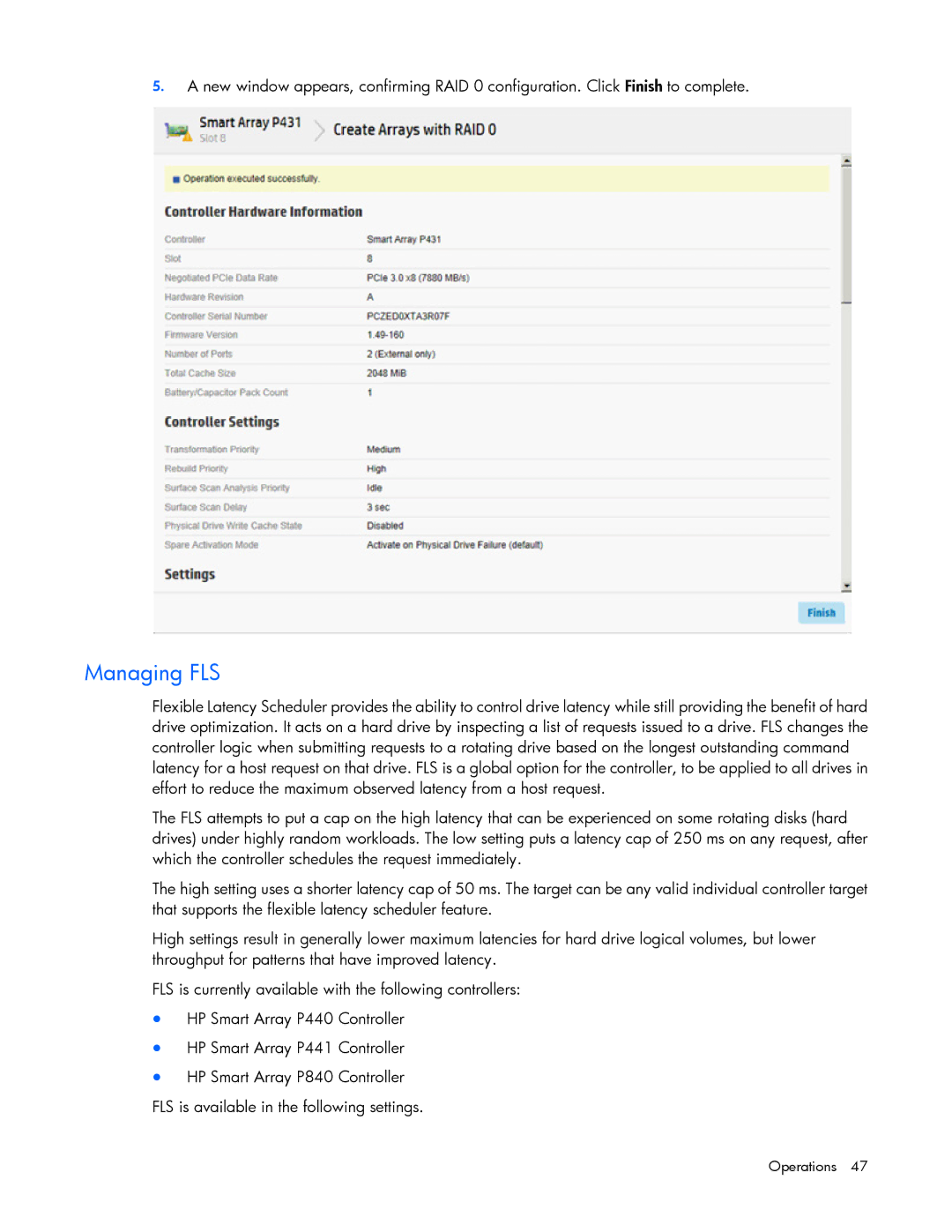
5.A new window appears, confirming RAID 0 configuration. Click Finish to complete.
Managing FLS
Flexible Latency Scheduler provides the ability to control drive latency while still providing the benefit of hard drive optimization. It acts on a hard drive by inspecting a list of requests issued to a drive. FLS changes the controller logic when submitting requests to a rotating drive based on the longest outstanding command latency for a host request on that drive. FLS is a global option for the controller, to be applied to all drives in effort to reduce the maximum observed latency from a host request.
The FLS attempts to put a cap on the high latency that can be experienced on some rotating disks (hard drives) under highly random workloads. The low setting puts a latency cap of 250 ms on any request, after which the controller schedules the request immediately.
The high setting uses a shorter latency cap of 50 ms. The target can be any valid individual controller target that supports the flexible latency scheduler feature.
High settings result in generally lower maximum latencies for hard drive logical volumes, but lower throughput for patterns that have improved latency.
FLS is currently available with the following controllers:
•HP Smart Array P440 Controller
•HP Smart Array P441 Controller
•HP Smart Array P840 Controller FLS is available in the following settings.
